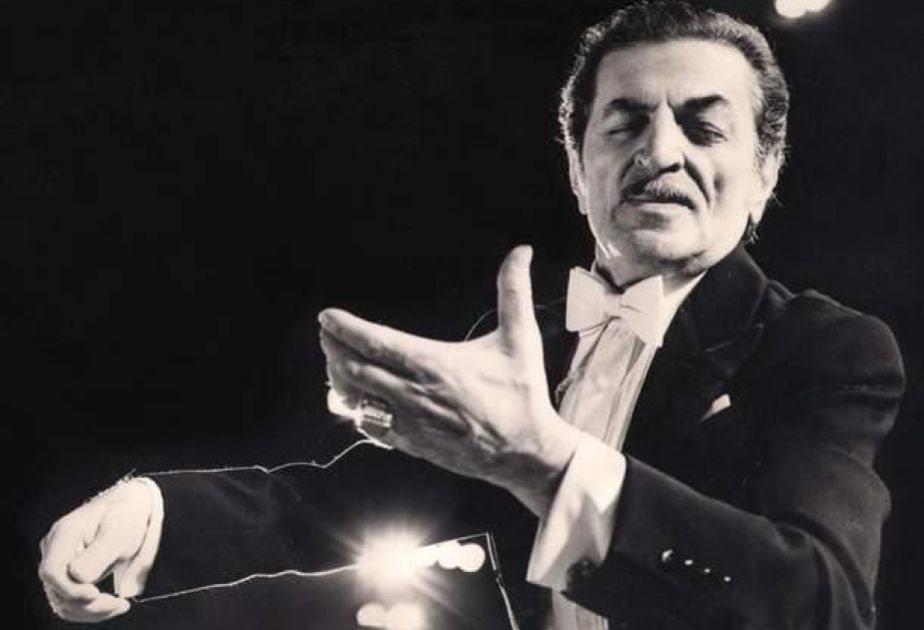This year marks the 113th anniversary of the birth of one of Azerbaijan’s most prominent cultural figures, Niyazi Tagizade-Hajibayov, Azernews reports.
A world-renowned conductor, composer, and public figure, Niyazi left an indelible mark on the history of Azerbaijani music.
Born on August 20, 1912, in a family of prominent musicians, Niyazi was the son of composer Zulfuqar Hajibayov and nephew of the great Uzeyir Hajibayli.
He grew up in Shusha, a cradle of Azerbaijani culture, surrounded by literary and musical luminaries such as Muslim Magomayev, Jalil Mammadguluzadeh, and Huseyn Javid. This rich cultural environment shaped the young Niyazi's artistic worldview.
Though initially drawn to a military career, his deep-rooted connection to music prevailed. He received his early training in violin and later studied composition under Mikhail Gnessin in Moscow.
Despite not having formal education in conducting, Niyazi's instinctive musicality and exceptional ear quickly earned him a place on the national stage.
By his mid-twenties, he had already begun working with orchestras at the Neftchilar Union Theater and the State Estrada Orchestra.
In 1937, he joined the Opera and Ballet Theater and rose to prominence during the 1938 Moscow Decade of Azerbaijani Art by conducting Muslim Magomayev's opera "Nargiz".
From 1948 until his death, he served as the chief conductor and artistic director of the Azerbaijan State Symphony Orchestra.
Under his baton, the orchestra became a premier institution, nurturing generations of Azerbaijani musicians and achieving international acclaim.
Though best known as a conductor, Niyazi was also a prolific composer. Among his early works were "In Flames", "Talysh Folk Songs", and the "Zagatala Suite", one of Azerbaijan's earliest symphonic compositions.
He also arranged several folk songs for orchestra and was the first to notate traditional mugams like "Rast" and "Shur".
Niyazi’s influence extended to cinema and theater, composing scores for landmark films like "Almaz" (with his father), "Mansur", and "Jeykhun and Ulkar". His work in these genres further enriched Azerbaijan's cultural tapestry.
Internationally, Niyazi brought Azerbaijani music to the world. He toured 23 countries, leading renowned orchestras and staging ballets by Tchaikovsky and Prokofiev in top venues like the Grand Opera in Paris and Covent Garden in London.
Notably, in 1961, he became chief conductor of the prestigious Leningrad Opera and Ballet Theater, a rare honor for a musician from the South Caucasus.
Anecdotes from his career reflect both his musical sensitivity and quiet authority. During a rehearsal with London's Royal Orchestra, a musician attempted to challenge him by playing incorrect notes.
Niyazi stopped the orchestra, approached him, and calmly whispered, "Maybe...", a subtle gesture that immediately brought the ensemble into full alignment with his vision.
In 1965, he conducted Turkiye's Presidential Symphony Orchestra, performing Tchaikovsky and works by Azerbaijani composers. The Turkish press lauded him as a master of both technique and emotion.
His contributions were recognized with the highest state honors, including the USSR State Prize, the title of People's Artist, and numerous medals. He was even made an honorary citizen of Tbilisi.
More than a conductor or composer, Niyazi was a nation-builder in music. His school of thought, his style, and his dedication to preserving and innovating Azerbaijani symphonic music continue to inspire generations.

